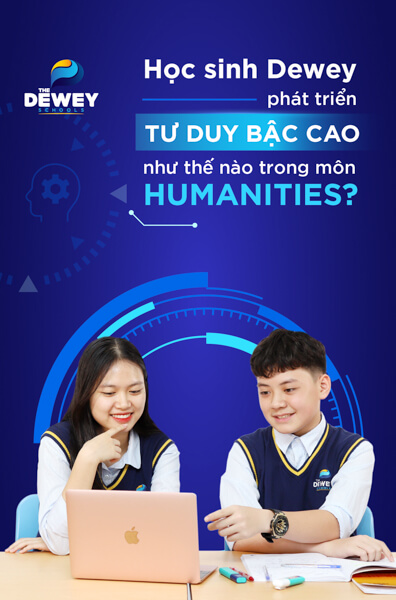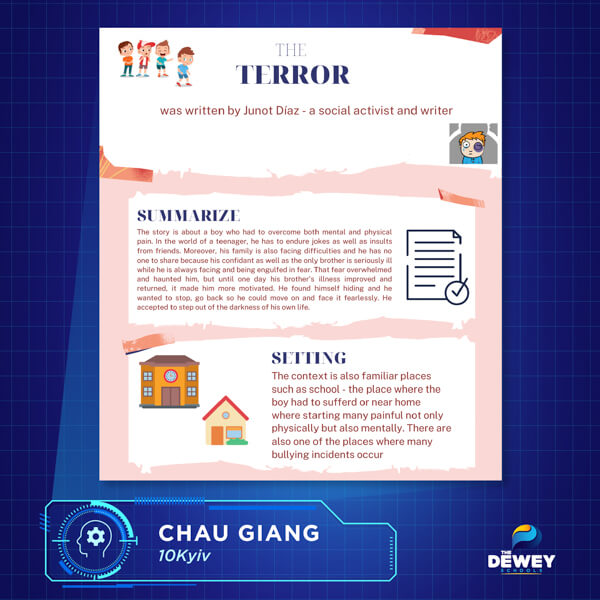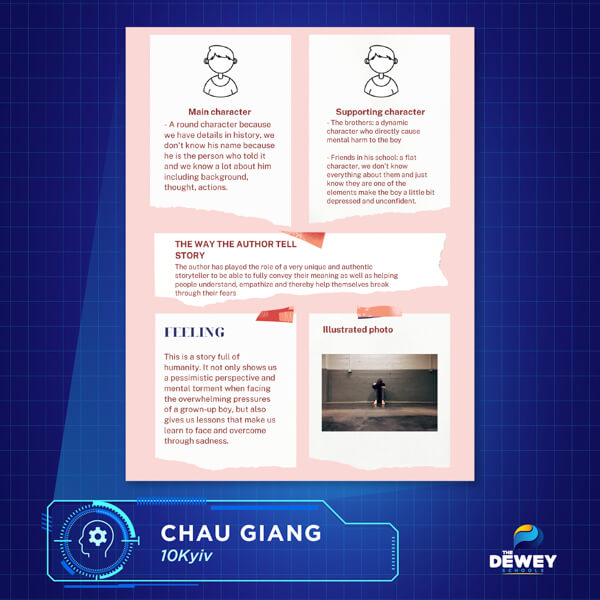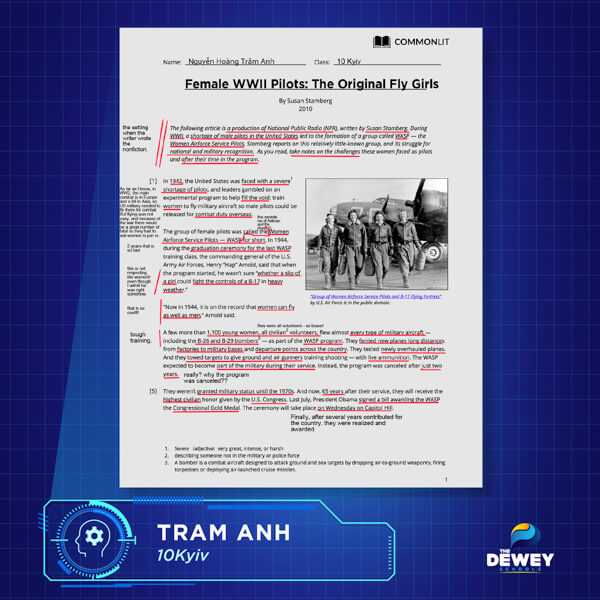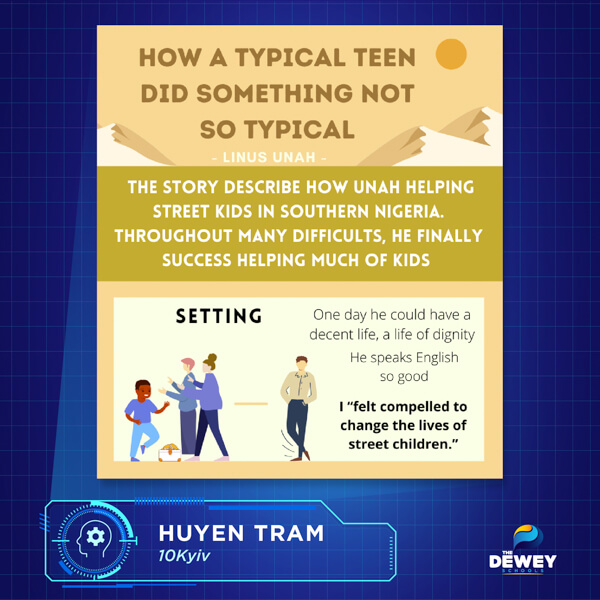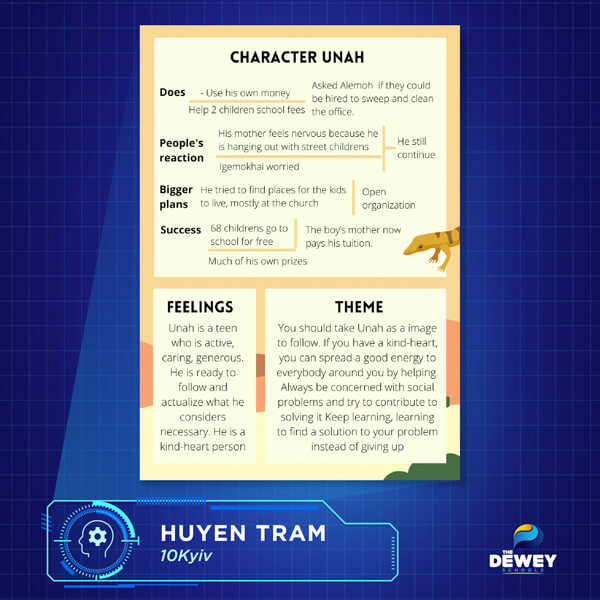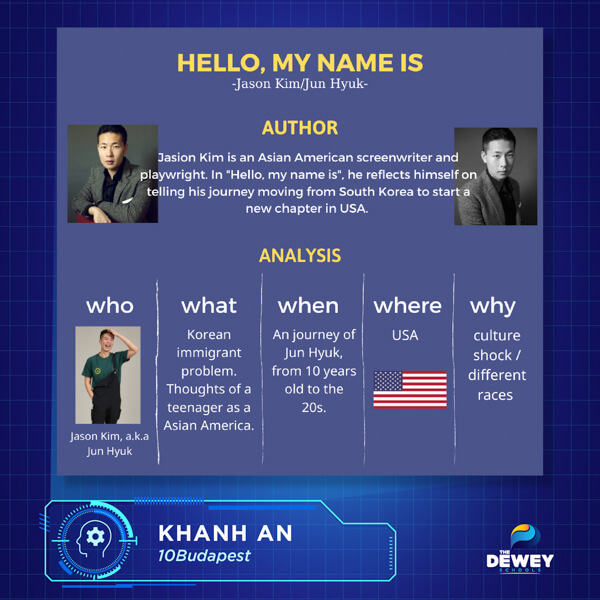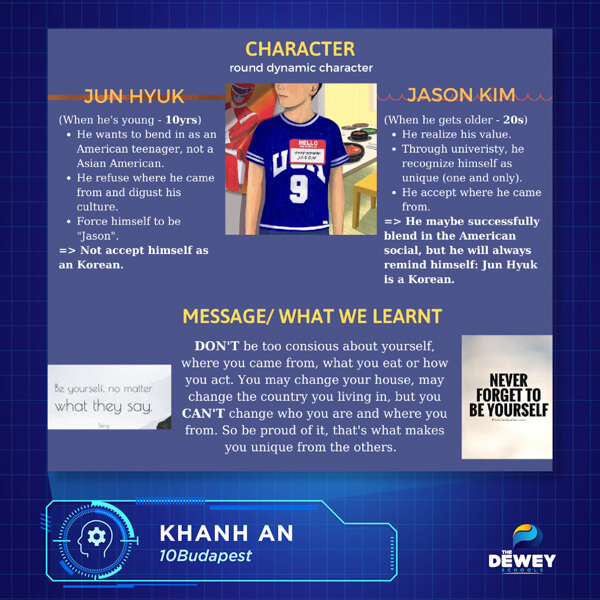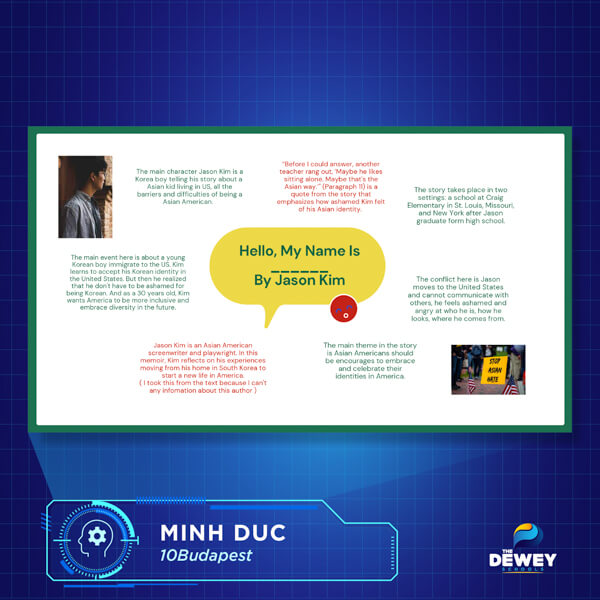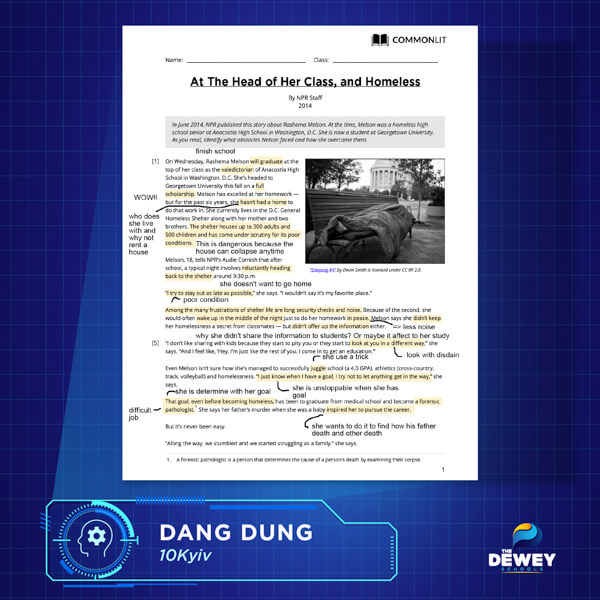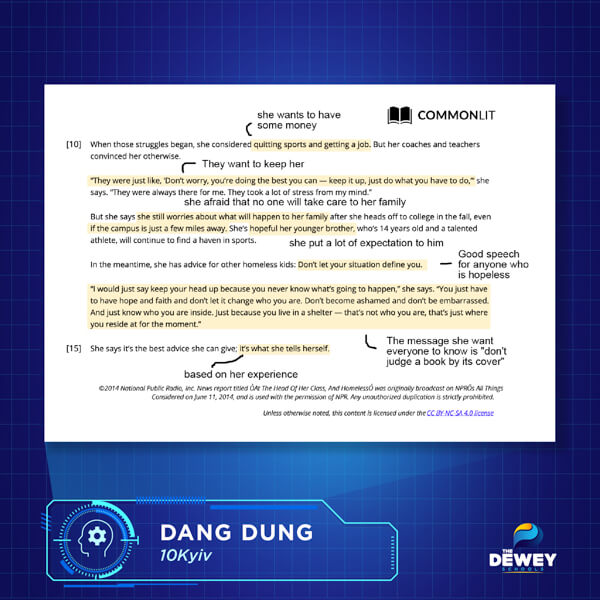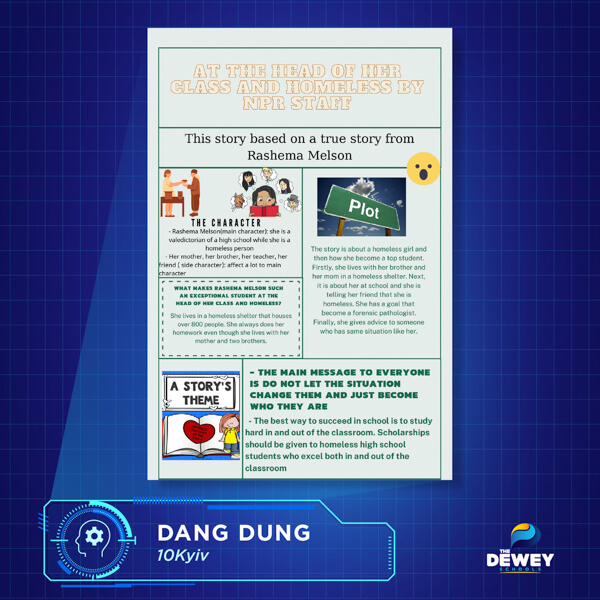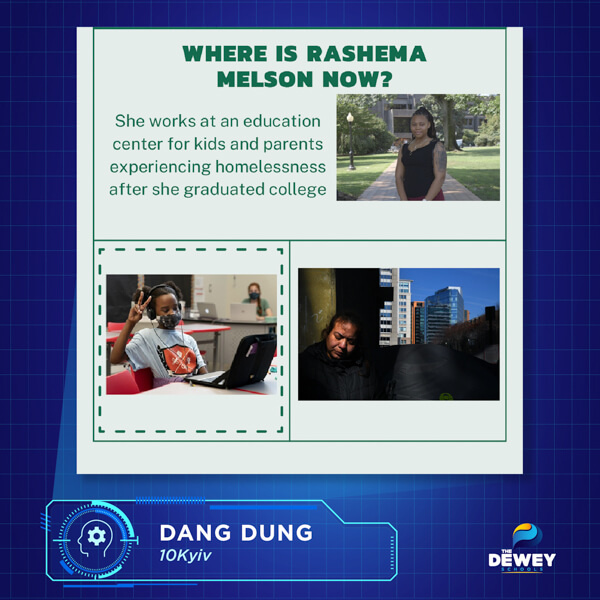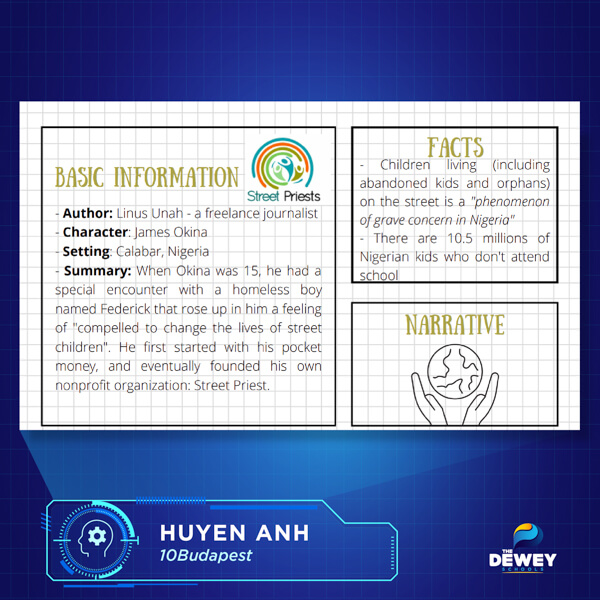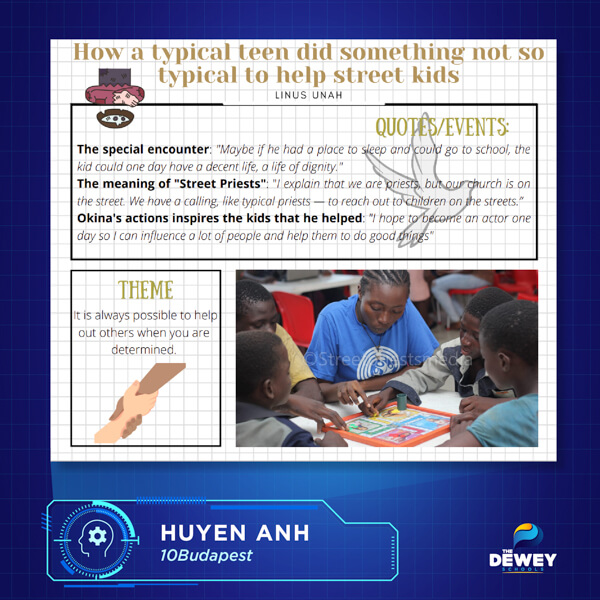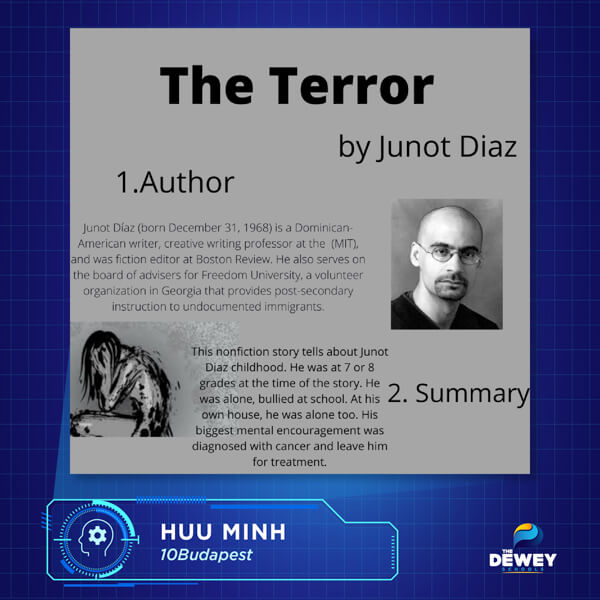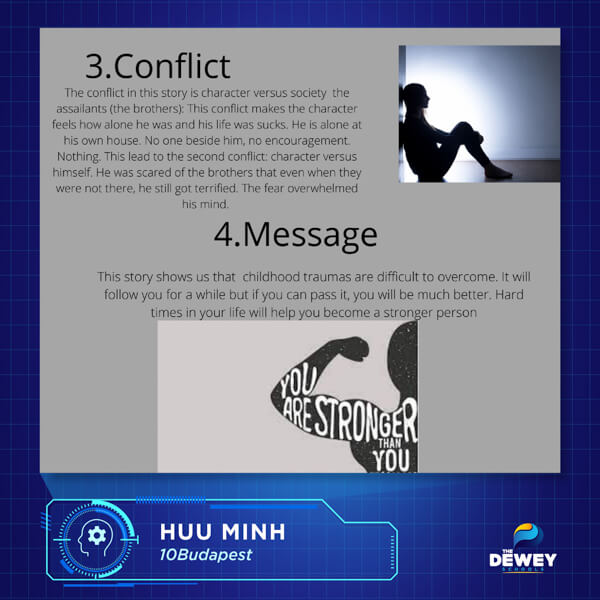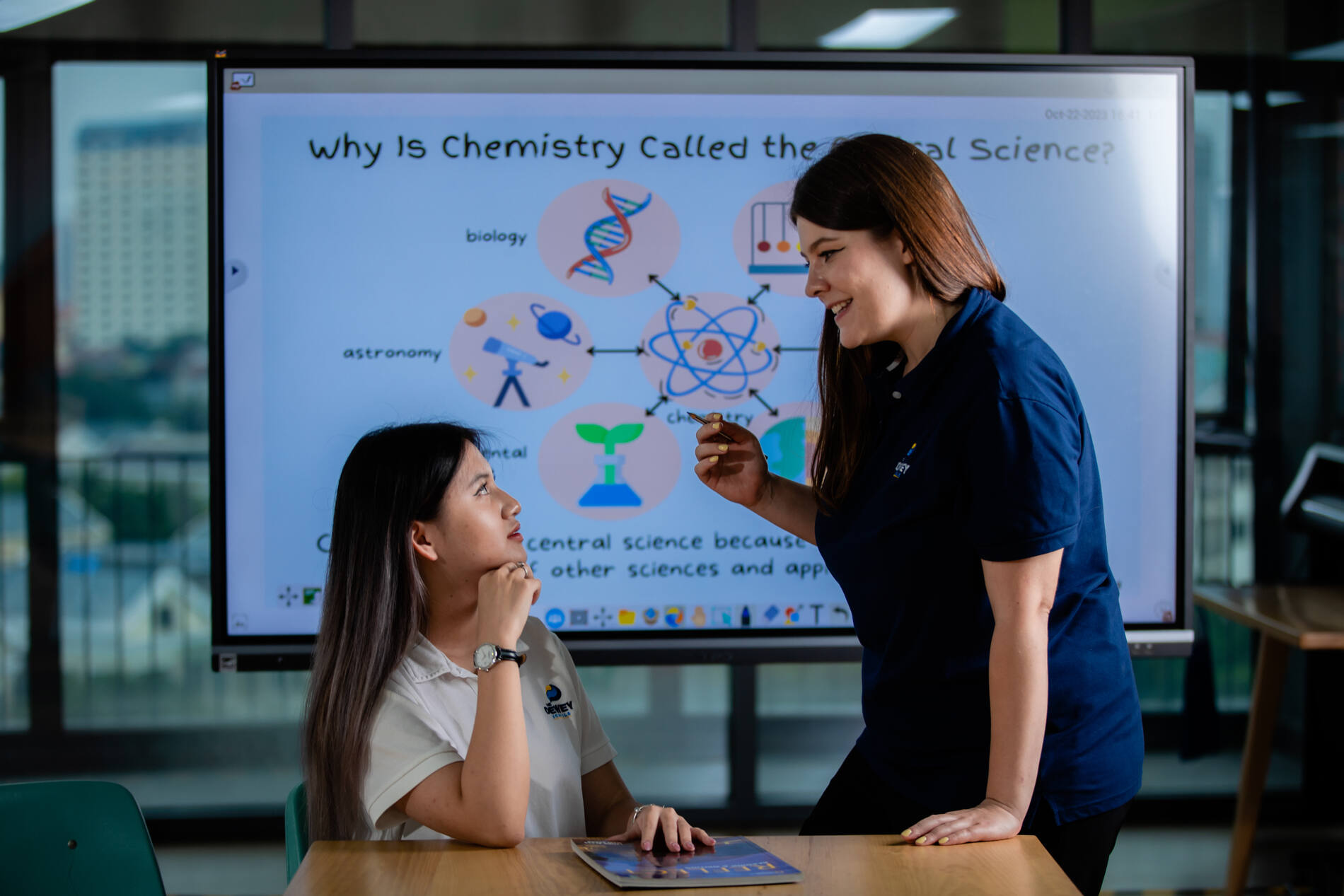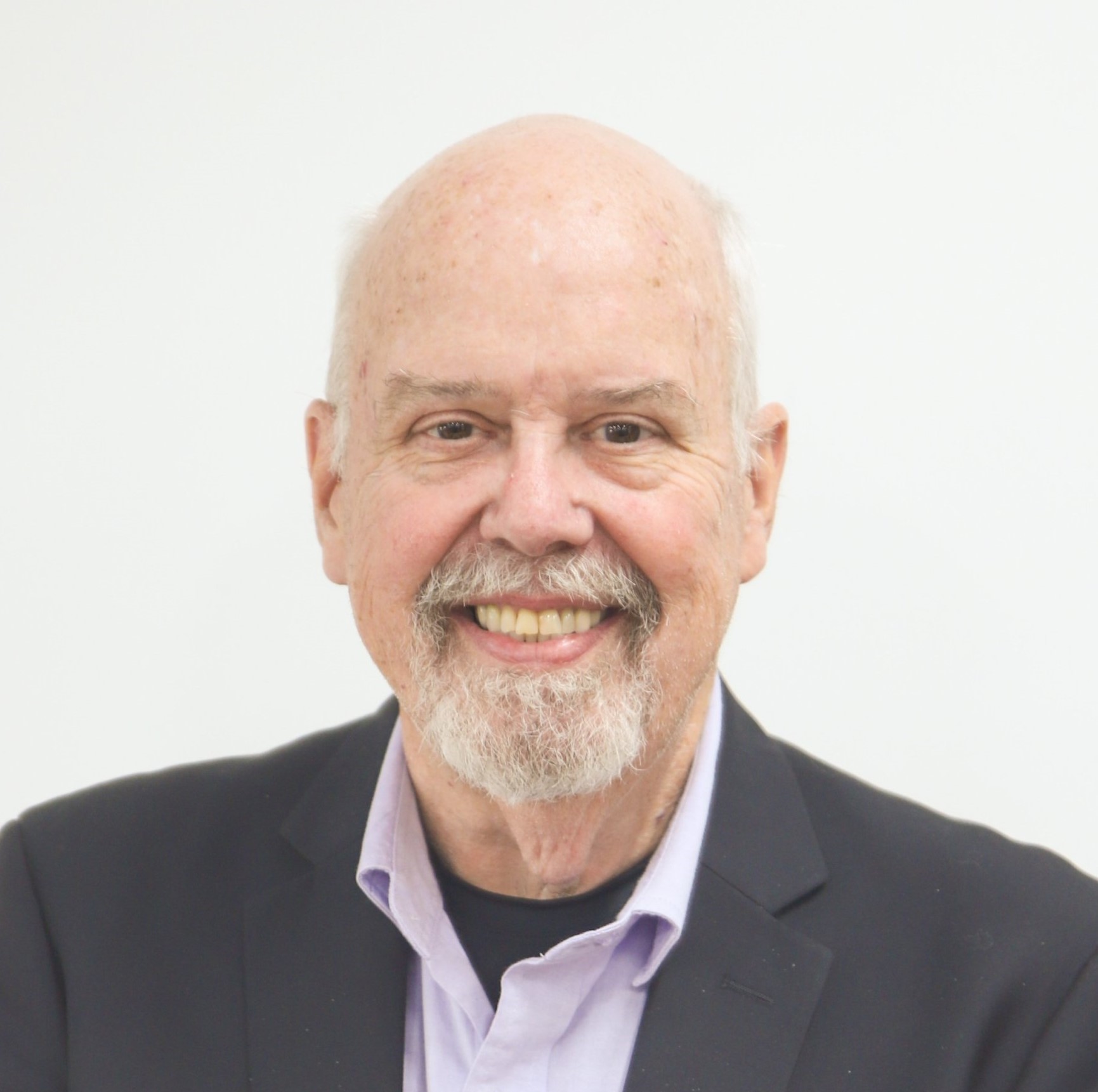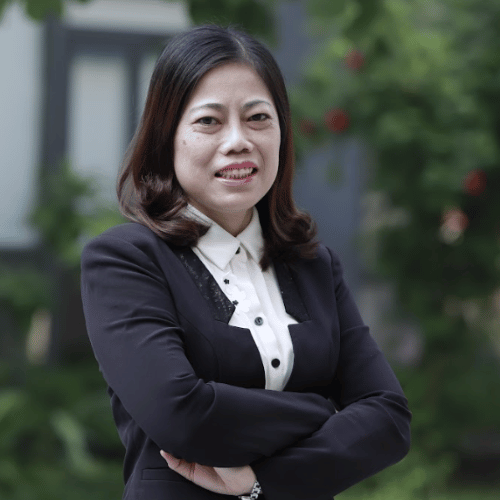🧠 Higher-order thinking skills, a major focus on teaching to students in the United States and other developed countries, is a concept of education reform based on various taxonomies of learning, particularly Bloom’s taxonomies that includes: Analyzing, Evaluating & Creating. This skill has a foundation built from 3 lower-order thinking skills: Remembering > Understanding > Applying.
📖 With the “Summative assessments” in Humanities (English – Humanities), Grade 10 students at The Dewey Schools have trained their higher-order thinking ability through their own choice of nonfiction narrative texts in English for in-depth reading, analysis and design into creative images to share and present with the whole class. Instead of only skimming, with inquiry-based learning, students actively take note of key details, ask and answer questions as a way to ‘talk to’ the literature work and learn about the historical and social context:
❓ “Why was the US Women Airforce Service Pilots Program disbanded after only 2 years?”
❓ “Is it more acceptable for women to serve in the military today? Why or why not?
❓ “If you were a consultant, what recommendations would you make to reduce homelessness?”
❓“What is the goal of education in general?/ How do we define the roles of men and women? Please cite textual evidence or personal experience, other literary, artistic, or historical works.”
📝 Comprehensive reading also requires students to explore the deeper meaning of the text, interpret the characters’ feelings and actions, and pay attention to the words used by the author. In the process of analysis, students link, cite arguments and evidence in the article to ask questions, explain or criticize information. Therefore, they not only receive information provided by the text, but also improve their ability to think and express in English; then critically reflect, consider and evaluate intensively through expressing their opinions and proving their own points of view.
🌏 In the 4.0 era, higher-order thinking is among the top important competencies that lead to solving complex problems in practice, where memorization and repetition cannot satisfy. Driven by higher-order thinking, Dewey students will have the ability to think independently, multi-dimensionally and they will also be constantly challenged to find more creative solutions, thereby increasing their competitive advantage in a world of changes.
—————————————————————————————————————————————————
🎓 HUMANITIES (English – Humanities) subject is taught 100% in English by foreign teachers in the Bilingual Program (Grades 6-10) and the International Adventure Program (Grades 6-9) at The Dewey Schools.
️🎭 This subject provides interdisciplinary knowledge in many fields such as History, Geography, Philosophy, Literature, Art, Politics, Language… thereby building a deep understanding of the problems of humanity and broadening the horizons and minds of the global citizens.
Humanities is inherited from the program of our partner school, Mount Vernon School – one of the Top 10 most innovative schools in the US, and is designed by a team of international education consultants: Ms. Janet Hale (Consultancy expert) Program Designer) and Ms. Karen Bailey (Evaluation Systems Consultant) and the ERPC team at The Dewey Schools.
